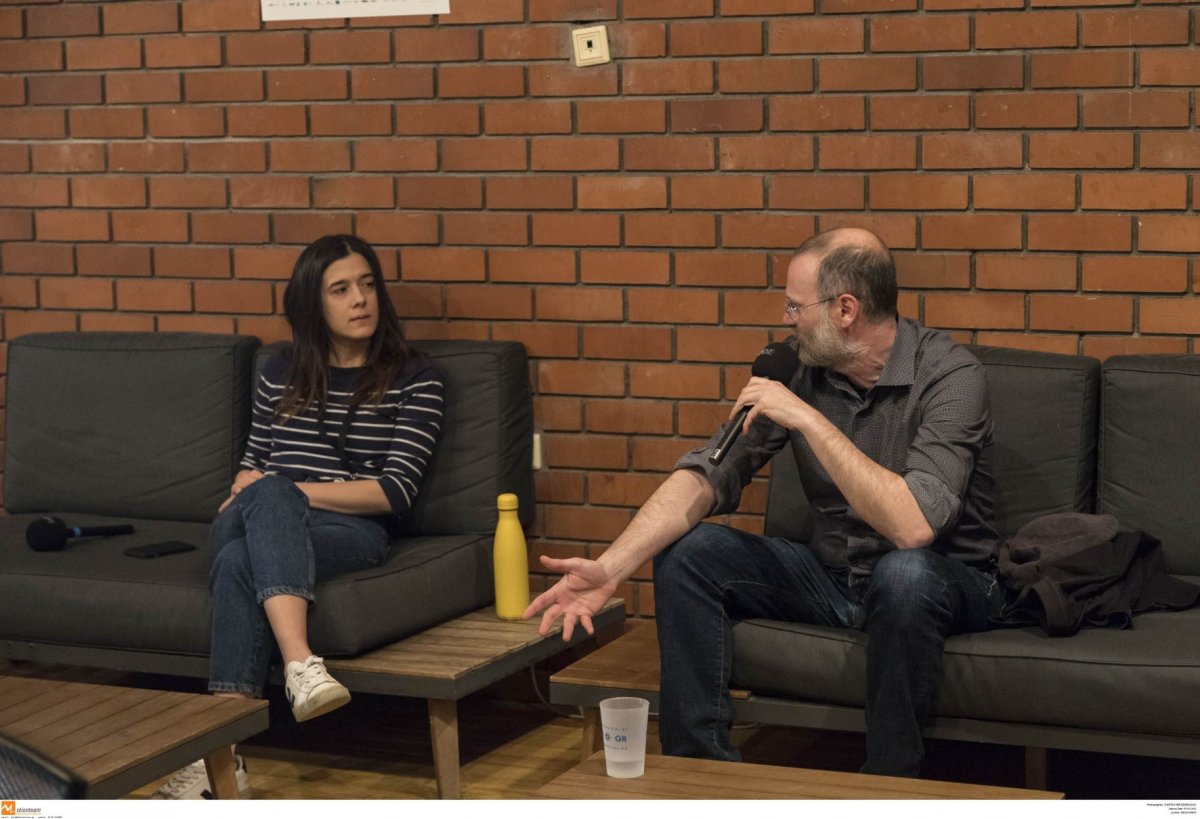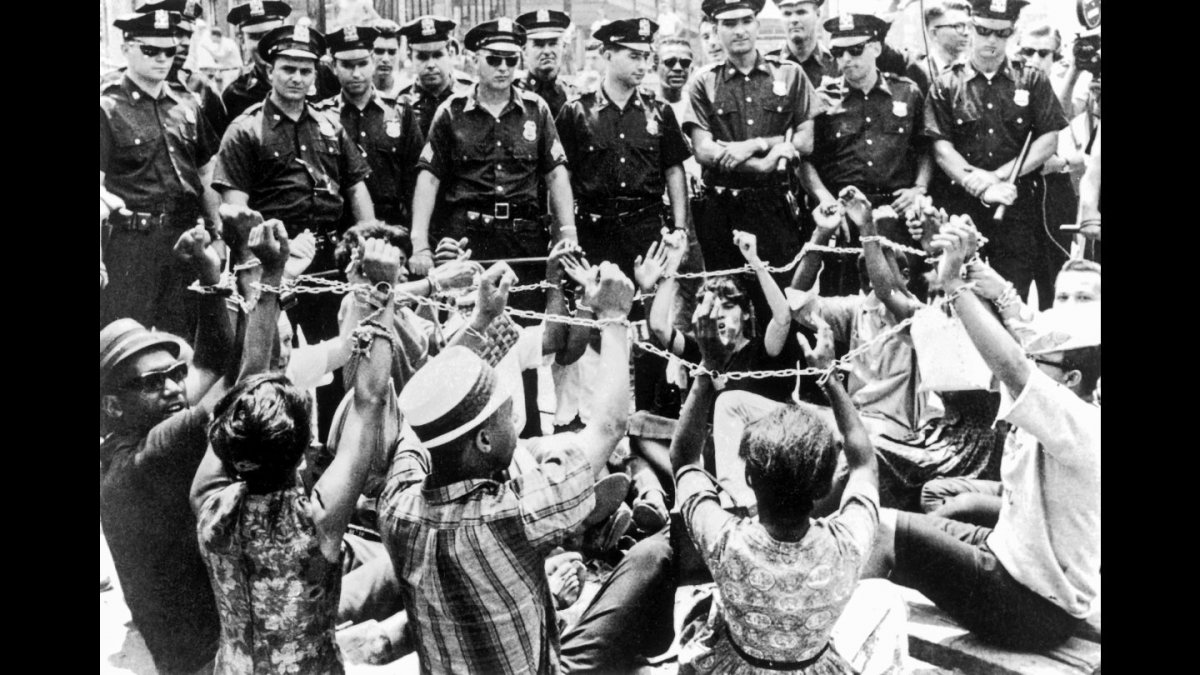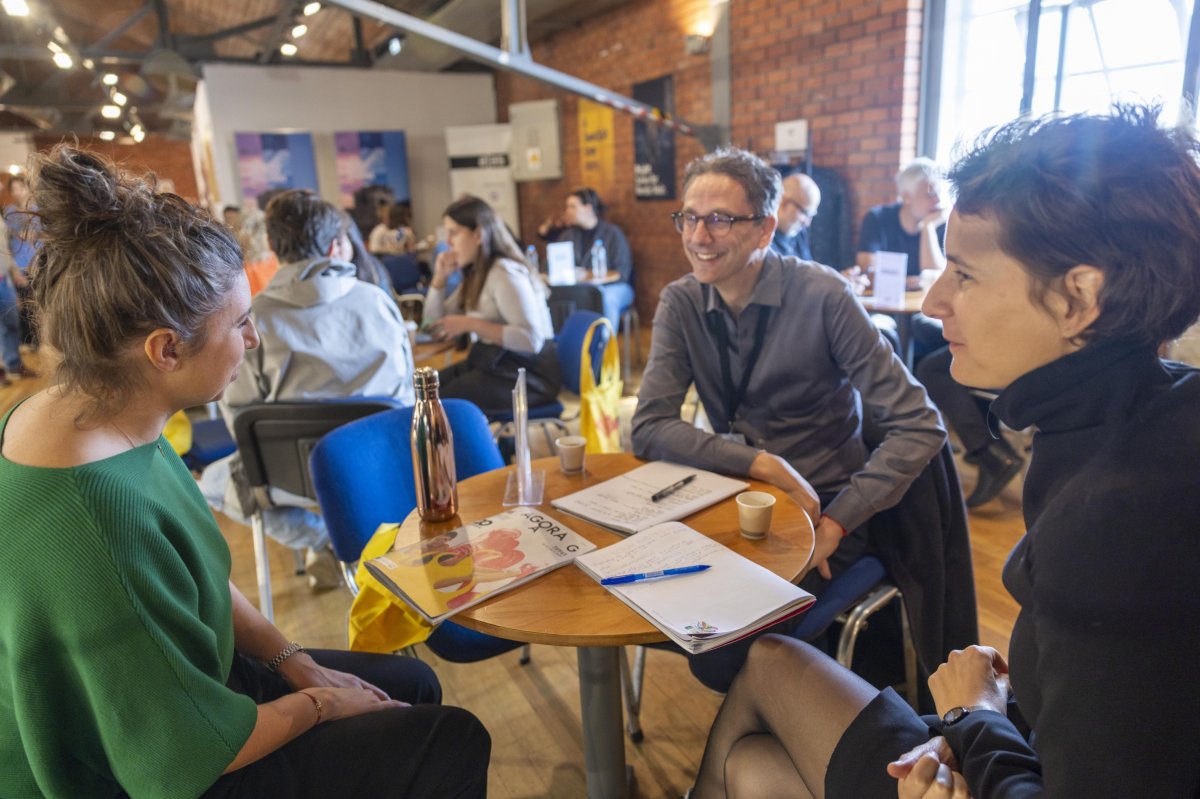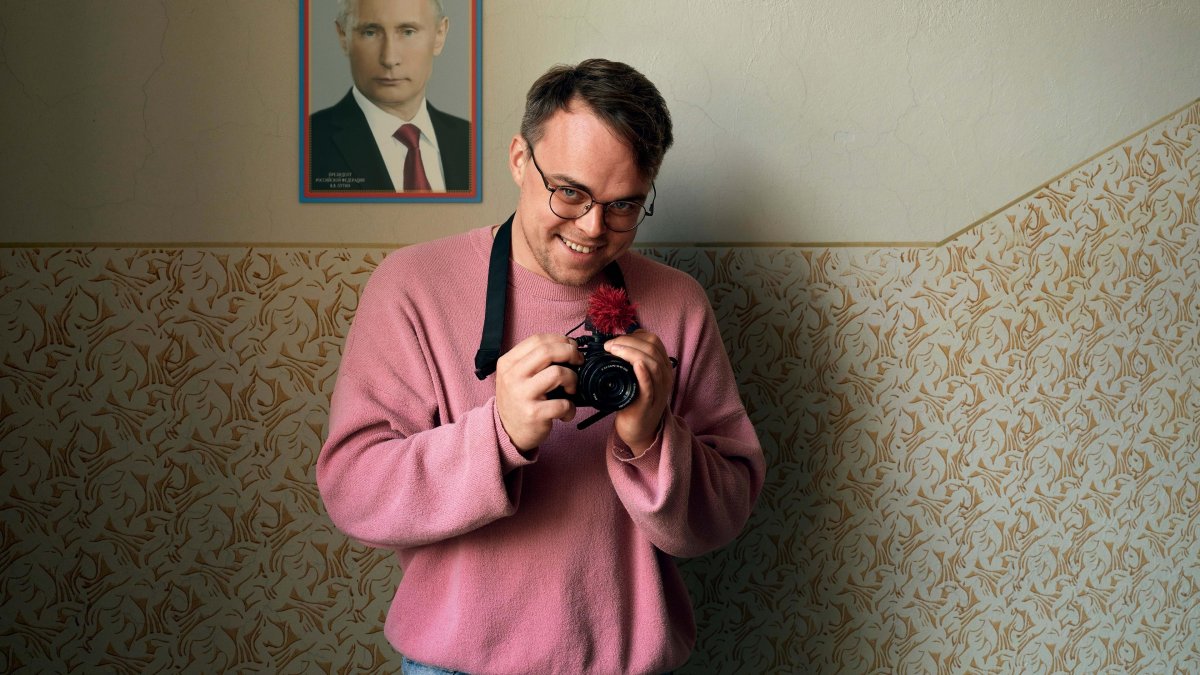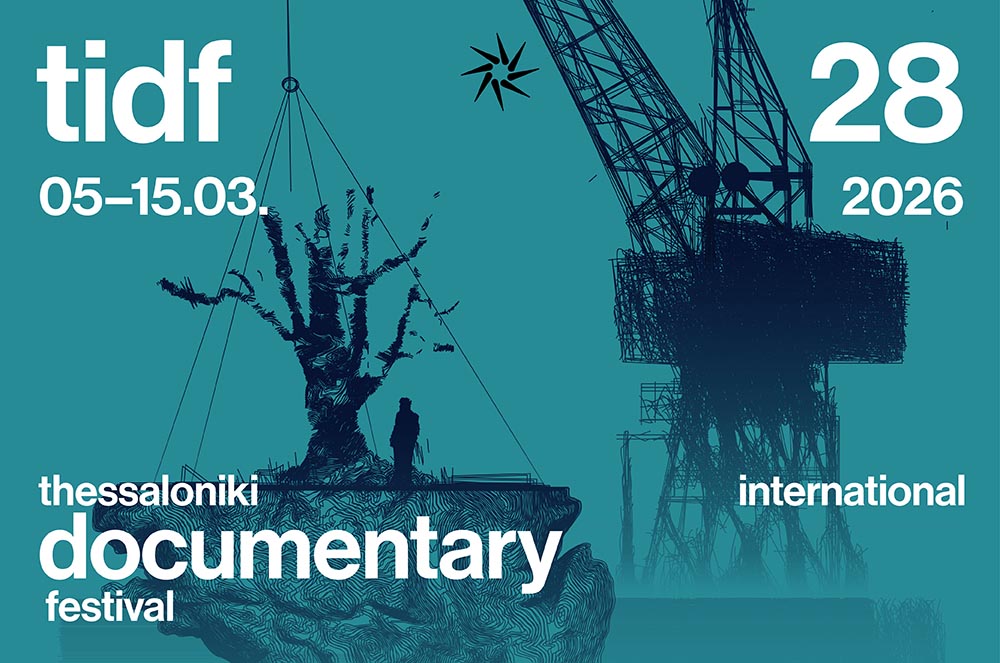The 25th Thessaloniki International Documentary Festival is launching a new parallel action, the Climate Hub, as a step towards reaching the goal of sustainability. The Climate Hub presents a series of conversations with the participation of leading organizations, teams and experts, focusing on issues of social and environmental sustainability, that will be discussed in regard to their applicability in the audiovisual sector. The conversation titled “Bottom-up circular economy, enabling making with an impact” took place on Sunday, March 5th, at Warehouse C, with Nikos Tsoniotis of SKG Makers as speaker. The discussion was coordinated by the Festival’s sustainability coordinator, Emma Doxiadi.
SKG Makers is an initiative of a synergy creative multispacer of the Municipality of Thessaloniki aiming to unite, empower and strengthen creative activity. Based on circular economy principles, and by providing access to equipment and knowledge, the goal is to highlight creative and entrepreneurial efforts that can be sustainable as well as impactful. They open the debate on social environmental innovation, redefining the concepts of reuse, redesign, and recycling of materials by supporting the creative forces of the city.
Initially, Emma Doxiadi introduced Nikos Tsoniotis and handed him the floor. Mr. Tsoniotis thanked the Festival for the invitation and said a few words about SKG Makers: “It’s a creative space where one can find rare equipment, available to any creator who is interested. SKG Makers is the result of an extended research carried out by the European Union in seven different European cities. Each city has, of course, different demands. In the case of Thessaloniki, SKG Makers is here to help creative people start off their creative endeavors, to examine them, to test them out in an actual space and to develop new techniques. The cornerstone of this initiative is circular economy: we contribute to the production of products, while also helping the environment”.
SKG Makers organized three types of workshops and gives access to:
- Electronic lab (3d printers, computers)
- Wood and metal processing lab
- Plastic recycling lab
“The European Union sets goals relevant to human activity in regards to sustainability, and circular economy is part of it”, he stressed. “The questions raised have to do with how we can benefit from used materials. Can we recycle them, reuse them or upgrade them? The way this process works, is with a “bottom-up” approach: How can we benefit from the flow of waste and use it as raw material for our work? How can urban creators benefit from the flow of waste and, eventually, how can we build more sustainable cities?”, he mentioned.
About the bottom-up approach, he explained that it is a social innovation and has to do with people themselves, who are interested in finding out the best practices so that waste is reduced or in learning to benefit from them. He also analyzed the theory of “low-hanging fruit”, the simple, daily practices that everyone can apply and which reduce our ecological footprint (walking instead of using a car, a reusable water bottle instead of a plastic one).
To a question by Ms. Doxiadi about the application of these practices in the film industry, he responded that in every process, in every sector, the same steps are followed: “We have to ask ourselves: how can I reduce my energy footprint? With the simple decision to use reusable water bottles during shooting, the production saves a lot of money in the long run and at the same time reduces its energy footprint. Some people may think that the goal of sustainability is not worth it. There are simple things, daily routines that many people don’t care about, but turn out in the end to be habits they stick to, that really help the environment. With the constant repetition of the message, we can forge a habit. Recently I read a research explaining that all it takes 66 days for a new practice to become a habit. If we all follow these simple practices, we’ll get a solid result”, he stressed.
“The positive results of SKG Makers can be calculated in two ways. The first is about how many works have been created and the second how we dealt with the flows of waste. We have processed about two tons of waste, a drop in the ocean on an urban. The real issue is to raise awareness so that the audience will adopt sustainable practices and return regularly to the flow of waste”, he said in relation.
In an attempt to offer a definition for sustainability, he spoke about the regulatory bodies’ effort to control how different sectors produce emissions. “We are at a transitioning stage, we are trying to see what we’ve done wrong. All the industries care about profit. The use of sustainable practices is still an alibi for us to change the way things work. We will see a huge change if we manage to keep the planet in a good condition. Otherwise, we will face severe issues”, he mentioned.
Finally, he referred to the importance of the cultural context in every attempt of sustainable practice, because every society has different needs, and concluded by stressing the importance of small, daily practices that eventually, in the long run, will make the difference: “The main conclusion is this: share your knowledge from your own sustainable practices with your community!”
The program for Climate Hub events during the following days:
Monday 6/3
“Zero waste steps”
A conversation and a deep dive around circular economy and sustainability “buzzwords”.
Speakers Aravella Salonikidou, Lizetta Fotoglou - Zero Waste Thessaloniki
Thursday 9/3
"Energy communities as drivers for a socially and environmentally sustainable filming"
Α conversation on climate change and just transitioning to a clean energy system. We will explore the concept of climate change, energy communities, and how to ensure that the energy transition is fair, inclusive, and democratic. We will also explore the concept of environmental sustainability and filming – energy consumption and CO2 emissions in film production, and think on ideas on how energy communities can minimize the environmental impact of film productions. We will also look at social and political dimensions of community energy, and inspirational community energy initiatives in Greece, the Balkans, and the rest of Europe.
Speaker Dimitris Kitsikopoulos - ELECTRA ENERGY cooperative
Friday 10/3
“Climate Change: the DOCument of sustainable choices”
How we could contribute to the mitigation of climate change through the adoption of good circular approaches and practices in the various aspects of cinematic reality. A participatory meeting of (re)thinking and sharing ideas and applications.
Speaker Filippos Nachmias - InCommOn
Saturday 11/3
“Changing the stories of climate change”
The climate crisis changes the lives of all of us on a daily basis. Its consequences are now visible and the stories surrounding it are endless and spread all over the world. Now, more than ever, we need a different, penetrating narrative. How can we escape from the classic narrative paths, tell different stories about the "bet of our generation" and touch the core of the matter?
Speaker Iasonas Kantas - WWF


